
The Austrian school is a heterodox school of economic thought that advocates strict adherence to methodological individualism, the concept that social phenomena result primarily from the motivations and actions of individuals along with their self interest. Austrian-school theorists hold that economic theory should be exclusively derived from basic principles of human action.

Murray Newton Rothbard was an American economist of the Austrian School, economic historian, political theorist, and activist. Rothbard was a central figure in the 20th-century American libertarian movement, particularly its right-wing strands, and was a founder and leading theoretician of anarcho-capitalism. He wrote over twenty books on political theory, history, economics, and other subjects.
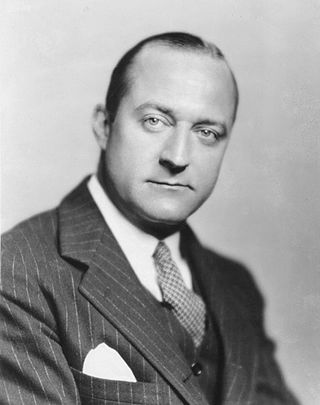
Henry Stuart Hazlitt was an American journalist who wrote about business and economics for such publications as The Wall Street Journal, The Nation, The American Mercury, Newsweek, and The New York Times.

Hans-Hermann Hoppe is a German-American academic associated with Austrian School economics, anarcho-capitalism, right-wing libertarianism, and opposition to democracy. He is professor emeritus of economics at the University of Nevada, Las Vegas (UNLV), senior fellow of the Mises Institute think tank, and the founder and president of the Property and Freedom Society.
The Ludwig von Mises Institute for Austrian Economics, or Mises Institute, is a nonprofit think tank headquartered in Auburn, Alabama, that is a center for Austrian economics, right-wing libertarian thought and the paleolibertarian and anarcho-capitalist movements in the United States. It is named after the economist Ludwig von Mises (1881–1973) and promotes the Misesian version of heterodox Austrian economics.

Paul Robin Krugman is an American economist who is the Distinguished Professor of Economics at the Graduate Center of the City University of New York and a columnist for The New York Times. In 2008, Krugman was the sole winner of the Nobel Memorial Prize in Economic Sciences for his contributions to new trade theory and new economic geography. The Prize Committee cited Krugman's work explaining the patterns of international trade and the geographic distribution of economic activity, by examining the effects of economies of scale and of consumer preferences for diverse goods and services.

Full-reserve banking is a system of banking where banks do not lend demand deposits and instead only lend from time deposits. It differs from fractional-reserve banking, in which banks may lend funds on deposit, while fully reserved banks would be required to keep the full amount of each customer's demand deposits in cash, available for immediate withdrawal.
The Mont Pelerin Society (MPS), founded in 1947, is an international academic society of economists, political philosophers, and other intellectuals who share a neoliberal or classical liberal outlook. It is headquartered at Texas Tech University in Lubbock, Texas, United States. The society advocates freedom of expression, free market economic policies, and an open society. Further, the society seeks to discover ways in which the private sector can replace many functions currently provided by government entities.

Thomas Ernest Woods Jr. is an American author, podcast host, and libertarian commentator who is currently a senior fellow at the Mises Institute. A proponent of the Austrian School of economics, Woods hosts a daily podcast, The Tom Woods Show, and formerly co-hosted the weekly podcast Contra Krugman.

Mark Thornton is an American economist of the Austrian School. He has written on the topic of prohibition of drugs, the economics of the American Civil War, and the "Skyscraper Index". He is a Senior Fellow with the Ludwig von Mises Institute in Alabama and a Research Fellow with the Independent Institute.

Criticism of socialism is any critique of socialist economics and socialist models of organization and their feasibility, as well as the political and social implications of adopting such a system. Some critiques are not necessarily directed toward socialism as a system but rather toward the socialist movement, parties, or existing states. Some critics consider socialism to be a purely theoretical concept that should be criticized on theoretical grounds, such as in the economic calculation problem and the socialist calculation debate, while others hold that certain historical examples exist and that they can be criticized on practical grounds. Because there are many types of socialism, most critiques are focused on a specific type of socialism, that of the command economy and the experience of Soviet-type economies that may not apply to all forms of socialism as different models of socialism conflict with each other over questions of property ownership, economic coordination and how socialism is to be achieved. Critics of specific models of socialism might be advocates of a different type of socialism.
The Austrian business cycle theory (ABCT) is an economic theory developed by the Austrian School of economics seeking to explain how business cycles occur. The theory views business cycles as the consequence of excessive growth in bank credit due to artificially low interest rates set by a central bank or fractional reserve banks. The Austrian business cycle theory originated in the work of Austrian School economists Ludwig von Mises and Friedrich Hayek. Hayek won the Nobel Prize in Economics in 1974 in part for his work on this theory.
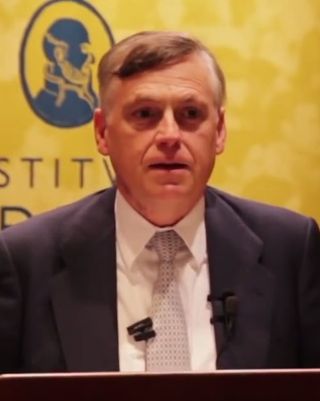
Jesús Huerta de Soto Ballester is a Spanish economist of the Austrian School. He is a professor in the Department of Applied Economics at King Juan Carlos University of Madrid, Spain and a Senior Fellow at the Mises Institute.
Robert L. Bradley Jr. is CEO and founder of the Institute for Energy Research, a think tank that supports fossil fuels. and that has been described as a front group for the fossil fuel industry. Bradley is a senior fellow at the American Institute for Economic Research (AIER), as well as Energy and Climate Change fellow of the Institute of Economic Affairs in London.

Ludwig Heinrich Edler von Mises was an Austrian-American economist, logician, sociologist and philosopher of economics of the Austrian school. Mises wrote and lectured extensively on the societal contributions of classical liberalism and the power of consumers. He is best known for his work in praxeology, particularly for studies comparing communism and capitalism, as well as for being a defender of classical liberalism in the face of rising illiberalism and authoritarianism throughout much of Europe during the 20th century.
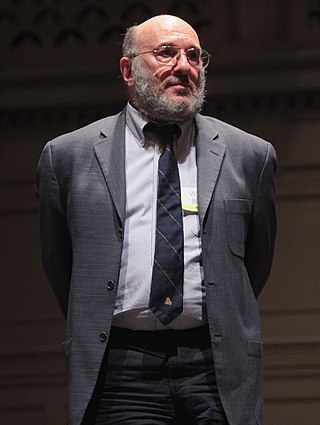
Walter Edward Block is an American Austrian School economist and anarcho-capitalist theorist. He was the Harold E. Wirth Eminent Scholar Endowed Chair in Economics at the School of Business at Loyola University New Orleans and a former senior fellow of the non-profit think-tank Ludwig von Mises Institute in Auburn, Alabama.

The Conscience of a Liberal is a 2007 book written by economist and Nobel laureate Paul Krugman. It was 24th on the New York Times Best Seller list in November 2007. The title was used originally in Senator Paul Wellstone's book of the same name in 2001. Wellstone's title was a response to Barry Goldwater's 1960 book The Conscience of a Conservative. In the book, Krugman studies the past 80 years of American history in the context of economic inequality. A central theme is the reemergence of both economic and political inequality since the 1970s. Krugman analyzes the causes behind these events and proposes a "new New Deal" for America.
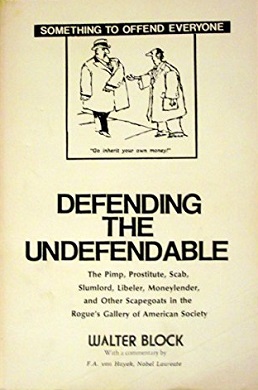
Defending the Undefendable is a 1976 book by American economist Walter Block. It has been translated into ten foreign languages. The book advances the thesis that various people are stigmatized for engaging in acts that are often illegal or disreputable yet do not involve violence or violation of property. Block further proposes these people may in fact benefit society. Each chapter examines a different type of person, including prostitutes, blackmailers, misers and litterers.

The Forgotten Man: A New History of the Great Depression is a book by Amity Shlaes published by HarperCollins in 2007. The book is a re-analysis of the events of the Great Depression, generally from a free market perspective. The book criticizes Herbert Hoover and the Smoot-Hawley Tariff as exacerbating the Depression through government intervention. It opines that Franklin D. Roosevelt pursued erratic policies that froze investment and failed to take the steps needed to stop the Depression, and that the New Deal extended the length of the Depression and had deleterious effects on individuals.
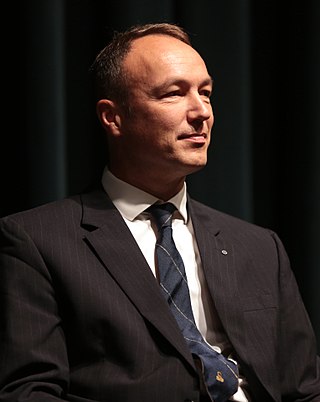
Jörg Guido Hülsmann is a German-born economist who studies issues related to money, banking, monetary policy, macroeconomics, and financial markets. Hülsmann is professor of economics at the University of Angers’ School of Law, Economics, and Management.

















